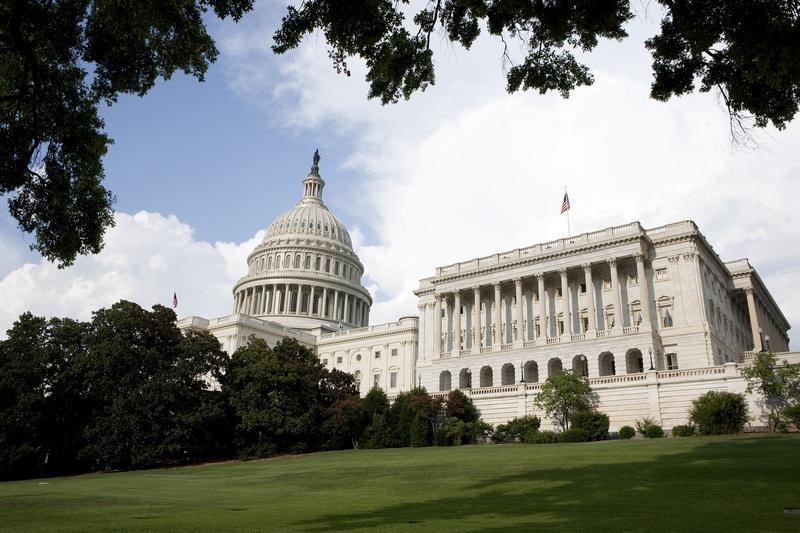CHICAGO (Reuters) - A bipartisan group of 30 Illinois House members on Tuesday threw their support behind efforts in the Senate to craft a bill package aimed at ending the state's historic budget impasse.
"We ask the senators from both parties to pass the best negotiated package they can, and then we will take up their work in the House," the group said in a statement.
The package, which includes tax hikes, pension changes and a local property tax freeze, stalled in the Democratic-led Senate in March, when most Republicans withdrew their support.
John Patterson, a spokesman for Senate President John Cullerton, said on Tuesday both sides are "trading ideas in trying to find agreement."
Illinois is limping toward the June 30 end of a second-straight fiscal year without a complete budget due to a standoff between its Republican governor and Democrats who control the legislature. Lawmakers face a May 31 deadline to pass budget bills with simple majority votes.
The bipartisan House statement surfaced after House Speaker Michael Madigan on Monday urged Governor Bruce Rauner to restart budget negotiations and appointed four top Democrats from his chamber to work on a deal.
Meanwhile, the Chicago-based Civic Federation, a nonpartisan government finance watchdog, released a report on Tuesday calling for an end to piecemeal funding that has kept the nation's fifth-largest state operating.
“The governor and General Assembly need to end this unacceptable stalemate by passing and enacting a comprehensive plan," Civic Federation President Laurence Msall said in a statement. "Cherry-picking certain areas of government to fund while pledging to work toward a complete budget sometime in the abstract future has not and will not end the crisis and in fact is making it worse."
Illinois' reliance on continuing appropriations, court-ordered spending and partial budgets has ballooned an unpaid bill backlog from $9.1 billion at the end of fiscal 2016 to more than $13 billion in fiscal 2017. Illinois Comptroller Susana Mendoza told a Senate committee on Tuesday that late payment penalties owed to vendors total about $800 million.
Eleni Demertzis, a Rauner spokeswoman, said the governor continues to push for "a truly balanced budget with structural reforms."
Major rating agencies, which have pushed Illinois down the credit scale six times since Rauner took office in January 2015, have indicated the state's triple-B bond ratings could fall closer to junk in the absence of a fiscal fix.
